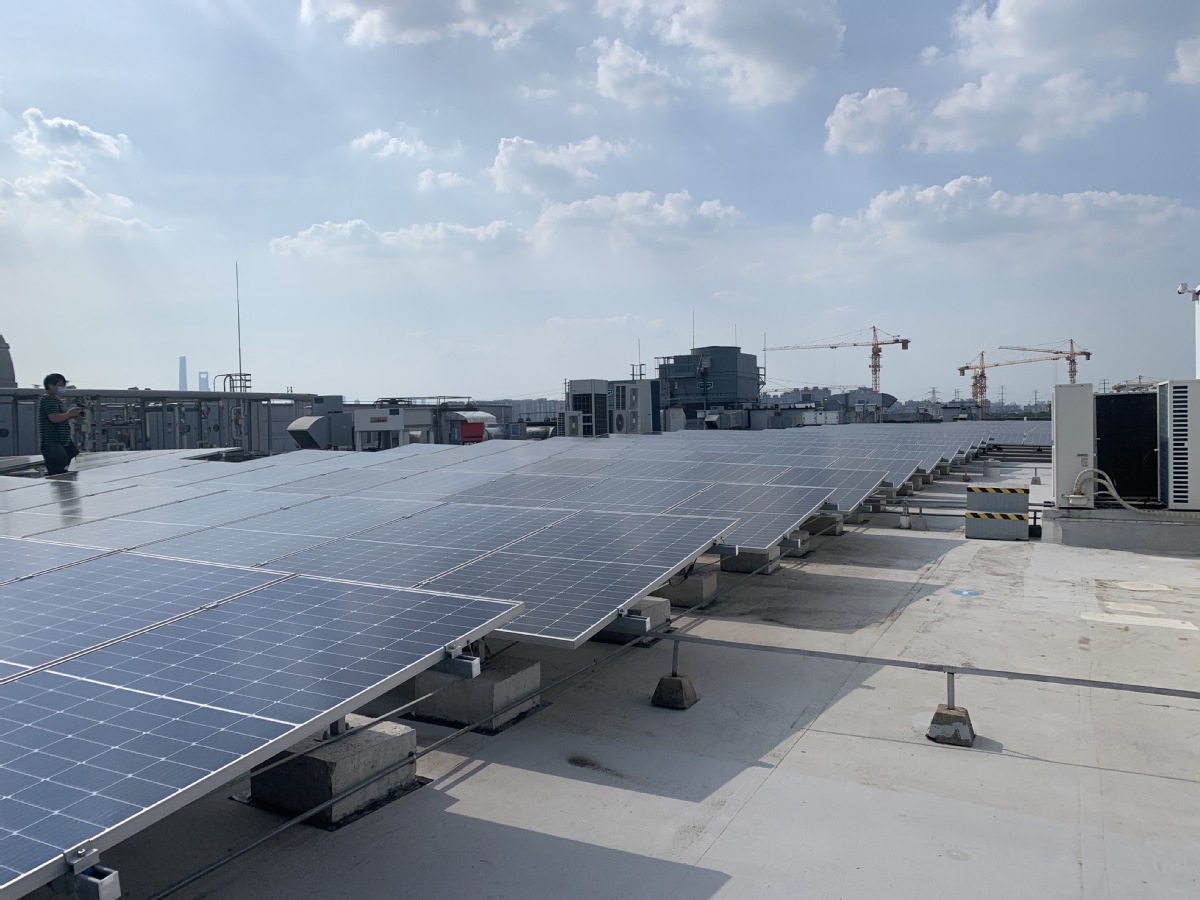Boehringer spearheads green push in China

A Boehringer Ingelheim employee checks rooftop solar energy equipment at a facility in Shanghai. LIN SHUJUAN/CHINA DAILY
Carbon neutrality is both achievable and profitable for corporations in pursuit of long-term development, according to German pharmaceutical company Boehringer Ingelheim.
The company's production facility in Zhangjiang, in Shanghai's Pudong New Area, recently attained carbon neutral certification from the Guangzhou Emission Exchange and TUV Rheinland, making it the first carbon neutral plant in China's pharmaceutical industry to be certified by both domestic and foreign authorities, the company announced on Friday.
An important pilot project under the global sustainable development strategy of BI, which plans to have all its operations attain carbon neutrality by 2030, the Zhangjiang plant achieved peaked carbon emissions in 2014 and has since been pursuing carbon neutrality through energy-saving projects, through a switch to green energy and partnering with internationally verified carbon offsetting organizations, according to Yin Xuelin, general manager of Boehringer Ingelheim Shanghai Pharmaceutical Co.
After years of efforts, the plant's carbon emissions in 2021 went to nearly zero, cutting more than 12,000 tons-an equivalent of carbon absorbed by 45,000 trees per year-from the peak in 2014, while its energy efficiency had improved by more than 77 percent, Yin said.
The factory's balance sheet for decarbonization over the past eight years has been even more impressive-a total investment of 7.5 million yuan ($1.1 million) versus an economic gain of 31 million yuan, according to the company.
"Through our success, we hope to set an example that carbon neutrality in the pharmaceutical industry not only can be achieved, but also holds a solution to cutting costs and improving business efficiency," said Yin.
Yin recalled that the company had held several rounds of training to learn more about China's dual carbon goals-peaking carbon emissions by 2030 and achieving carbon neutrality by 2060-when they were unveiled in 2020. Efforts were then made to create a viable road map to support them.
"As sustainable development is in BI's corporate genes, we were glad to find that the goals were well aligned with what we've been doing," said Yin.
Jiang Nanqing, secretary-general of the Committee of Green Circular and Inclusive under the All-China Environment Federation, said many companies in China are still at a loss when it comes to carbon neutrality as there are no standards and practices to reference.
"This is even so in an industry like pharmaceuticals, which involves mostly voluntary rather than mandatory carbon reduction efforts," Jiang said. "There are still more discussions than real practices taking place."
"Currently, many multinational companies have jumped onto the carbon neutrality bandwagon as they have the resources and motivation to build their brands and stay competitive. Many domestic companies, especially small to medium-sized enterprises, might see the need to go green but are reluctant to act as they either don't know how to or have yet to see the potential benefits the process might bring," she added.
"A successful example by a leading player in the industry can help point the direction and offer feasible solutions. It can also facilitate change and engage more players along the supply chain."
For example, Jiang added, when carbon neutrality becomes a new threshold for market access, more companies will have to go green to stay competitive.
Yin agreed with this sentiment, saying that he is confident the huge economic returns seen at BI's plant in Zhangjiang could encourage more companies to follow suit.
BI Shanghai has also been helping draft evaluation standards for zero-carbon factories, Yin said.
"We will also extend our green practices to all our branch operations in the country, share our experiences and solutions with other pharmaceutical firms, and influence our suppliers and distributors to help China peak carbon emissions as soon as possible," he added.


